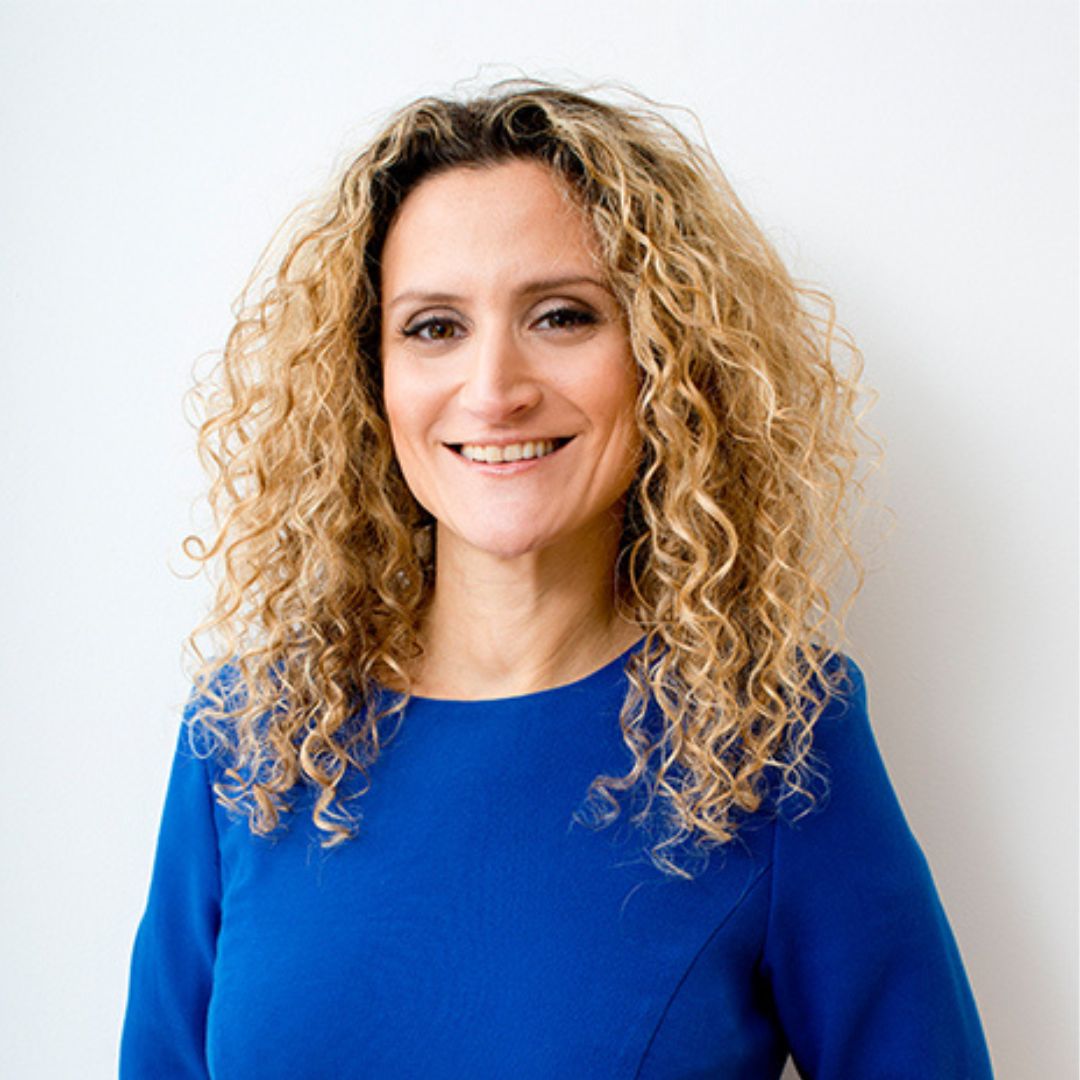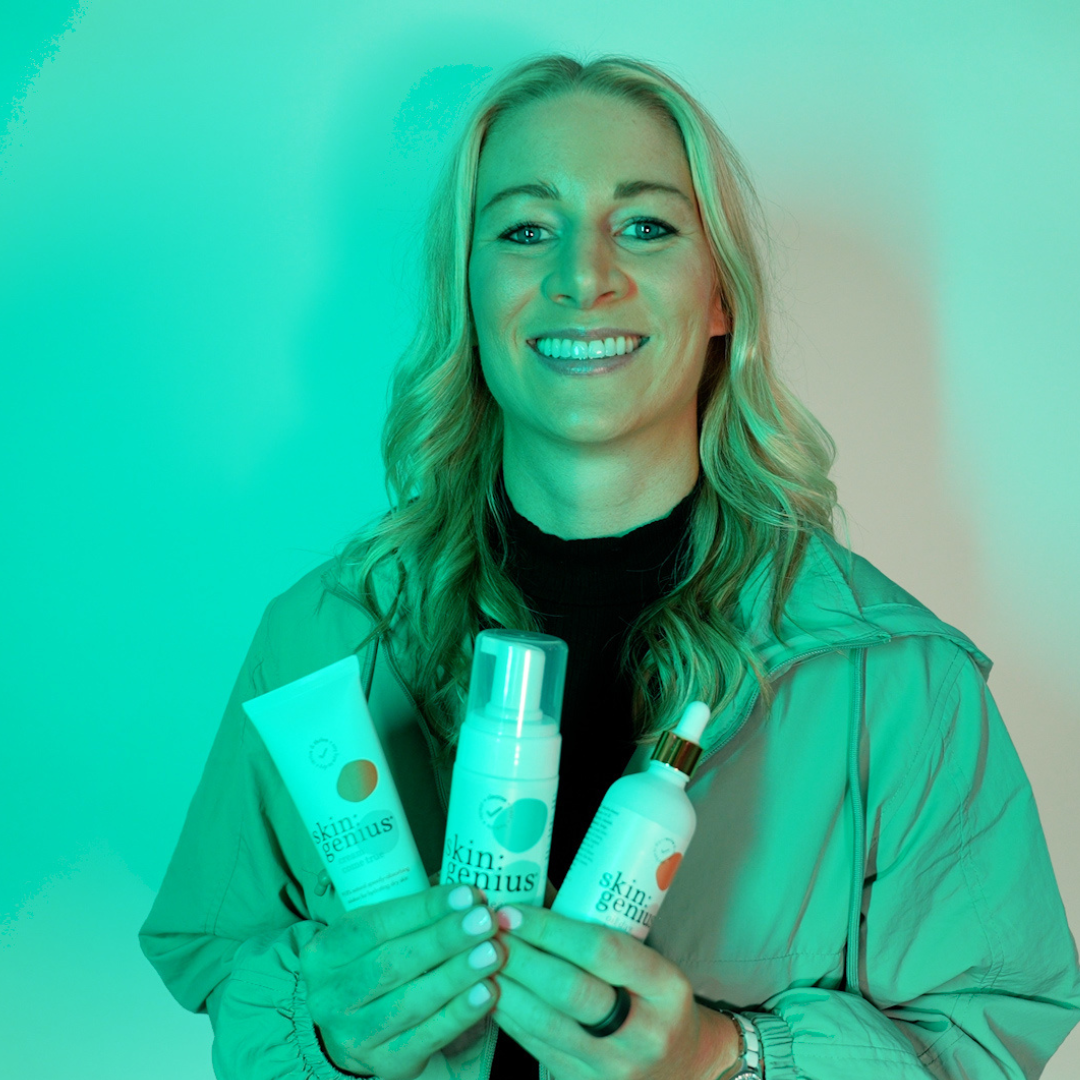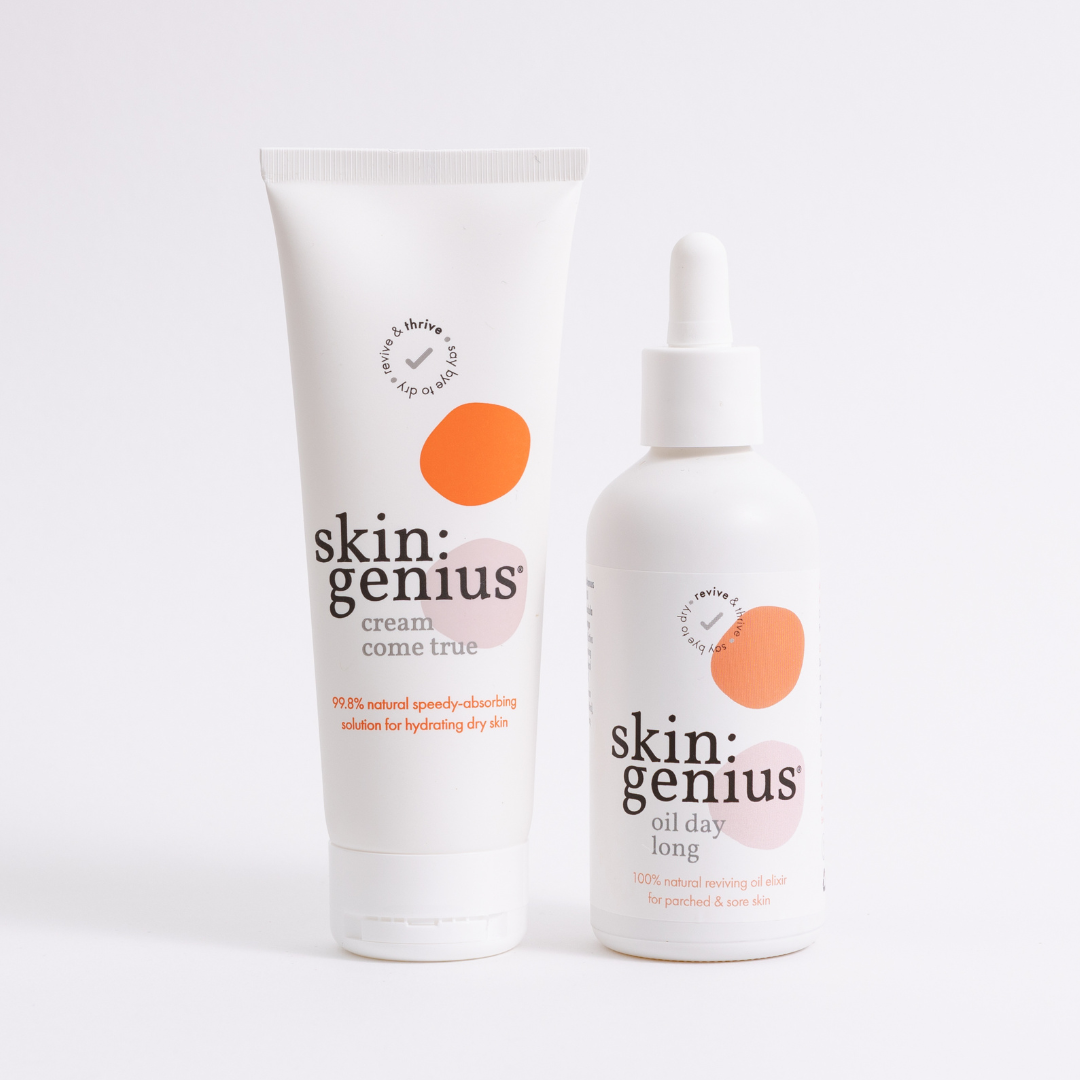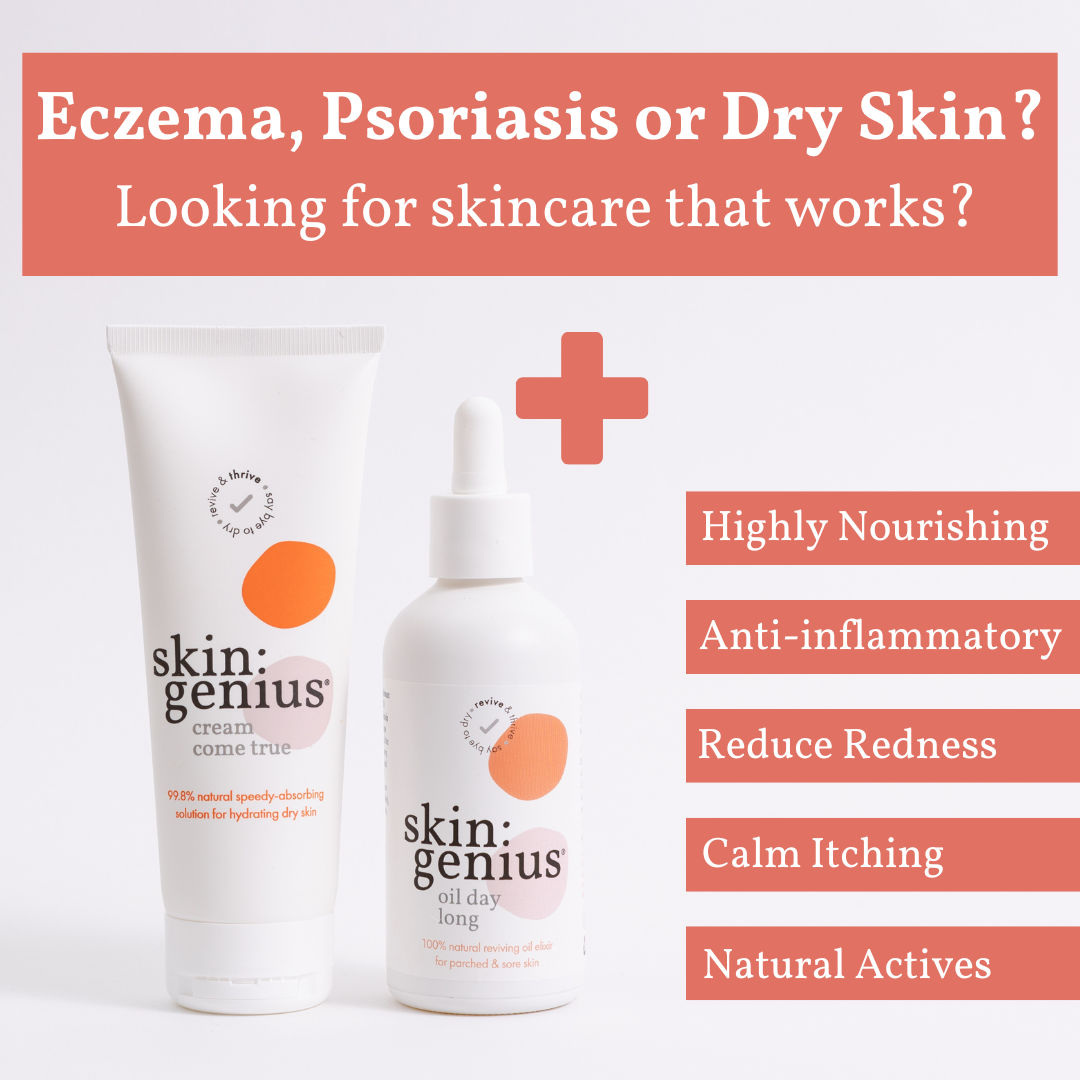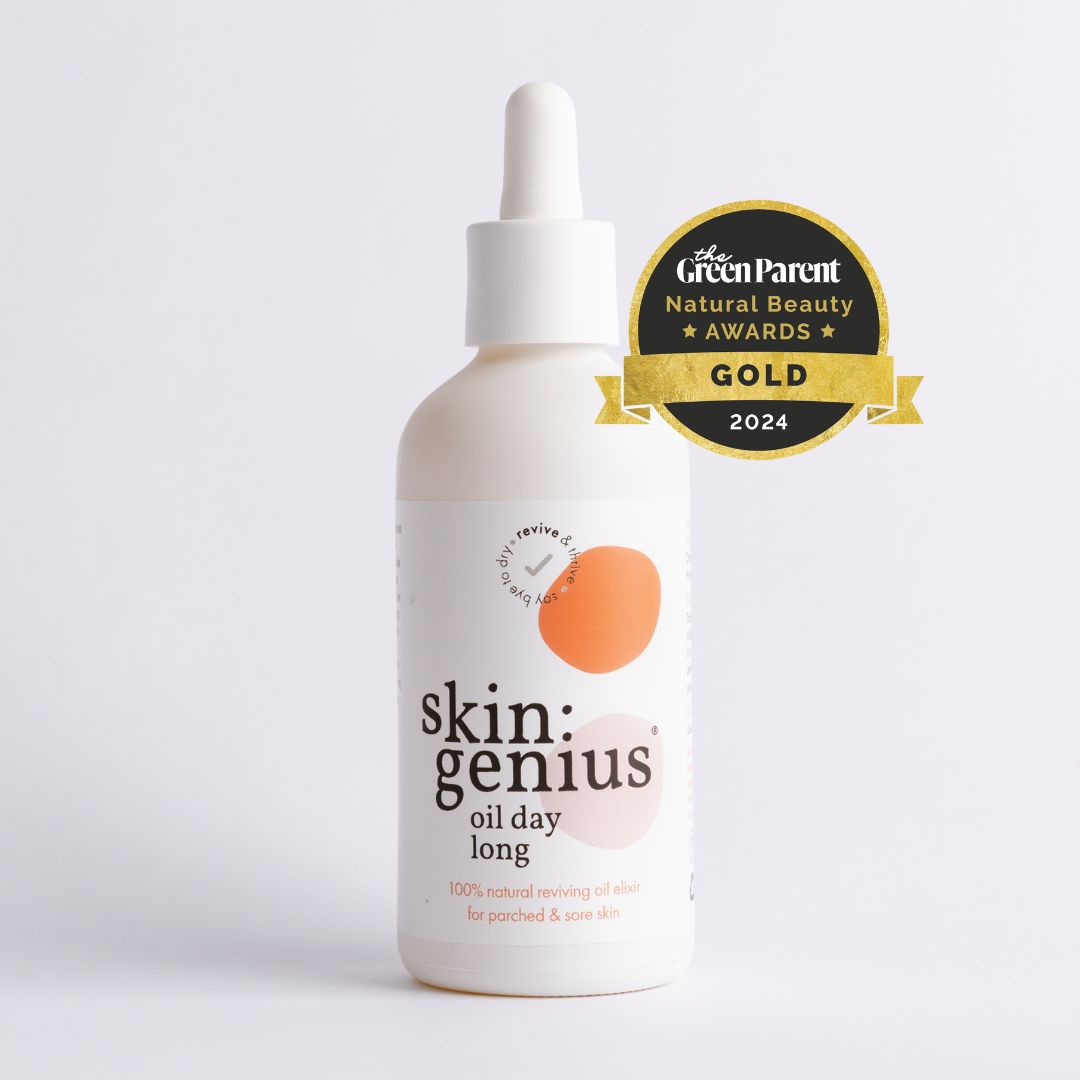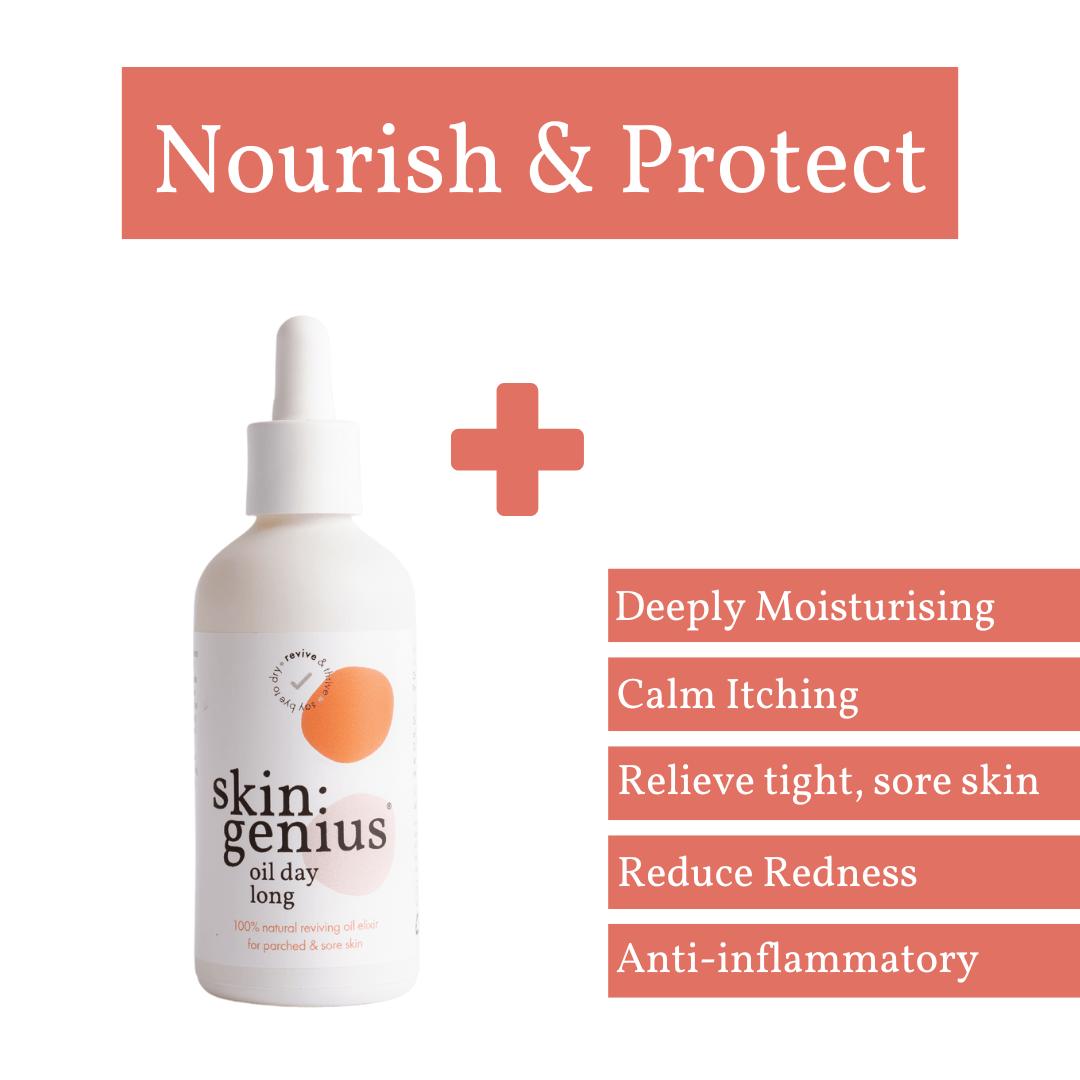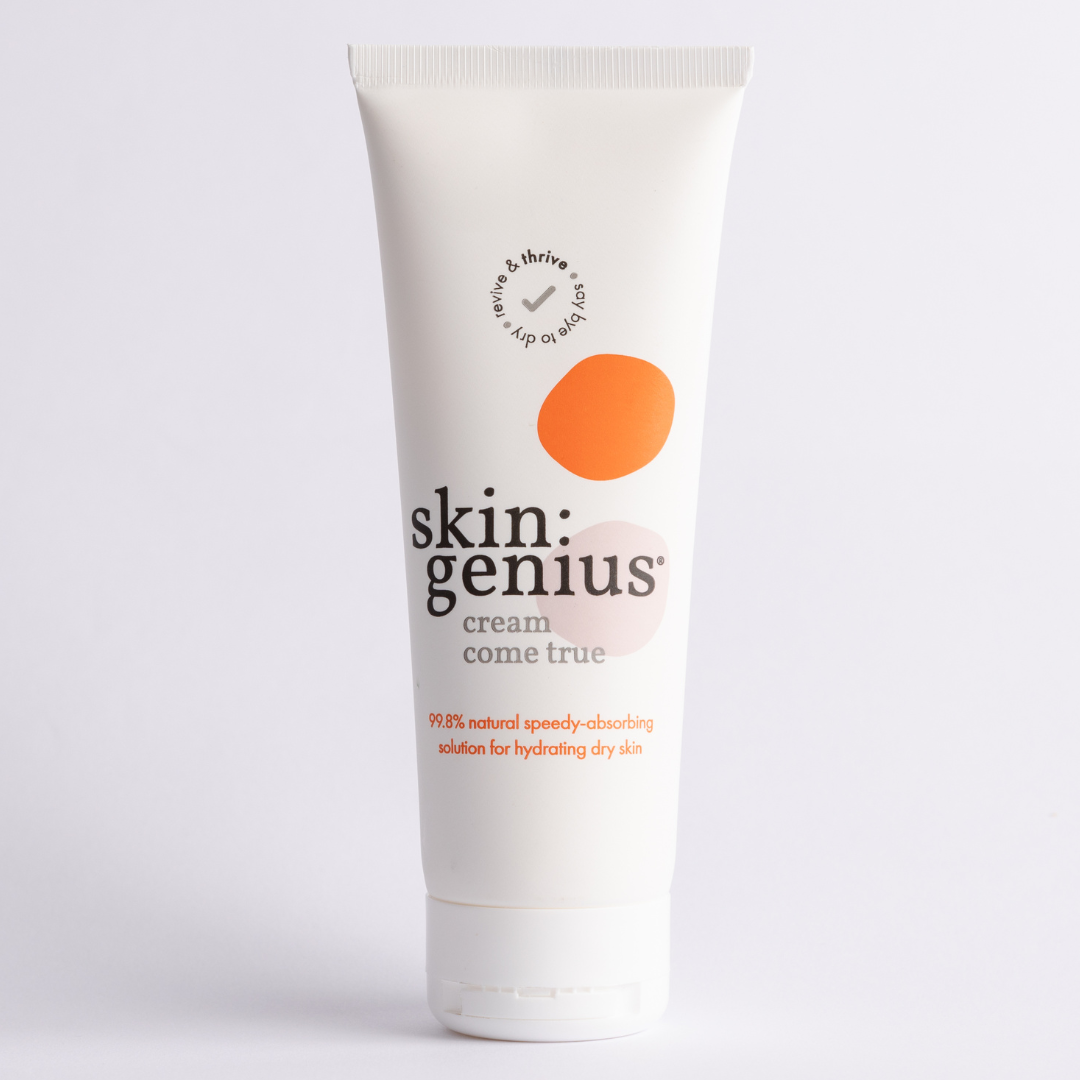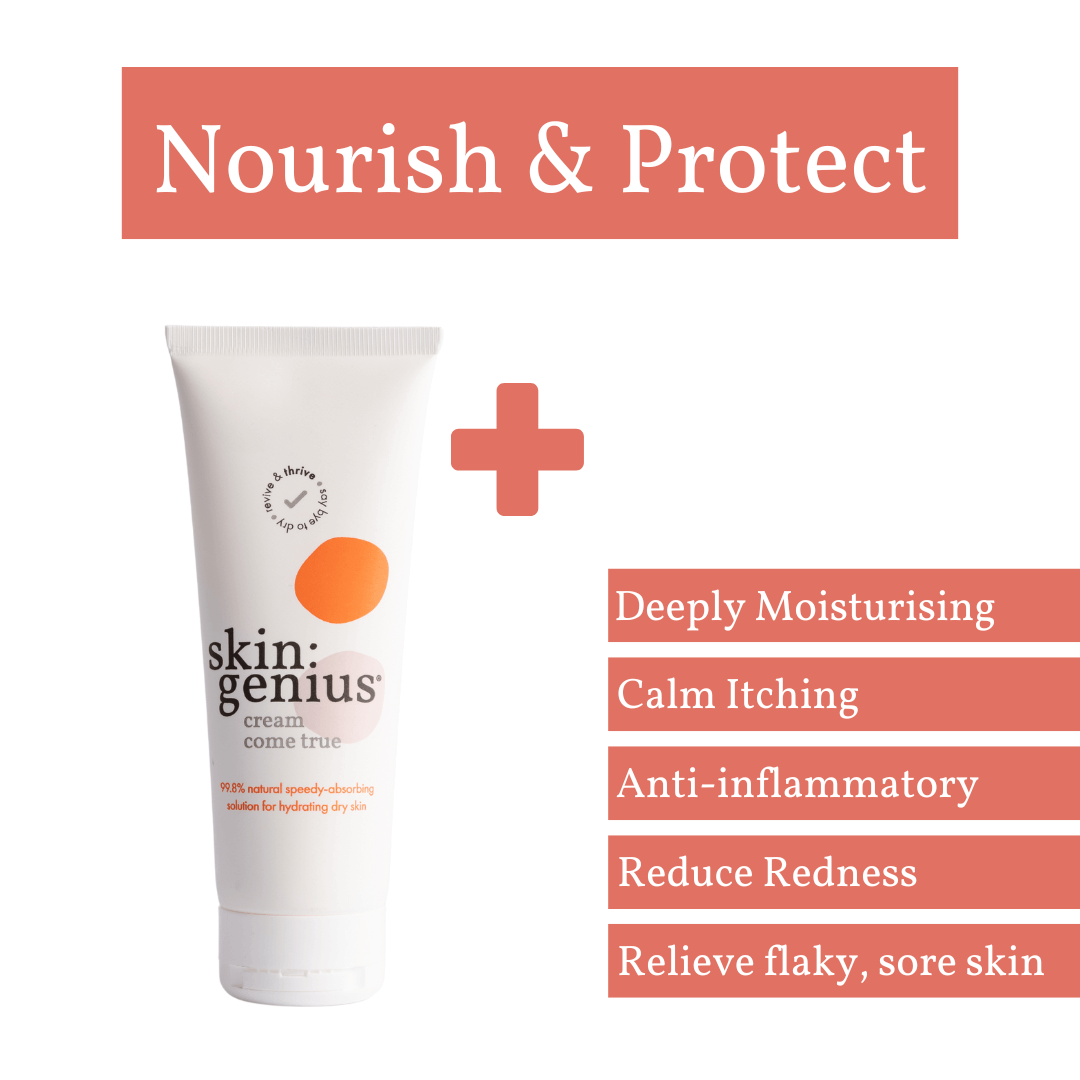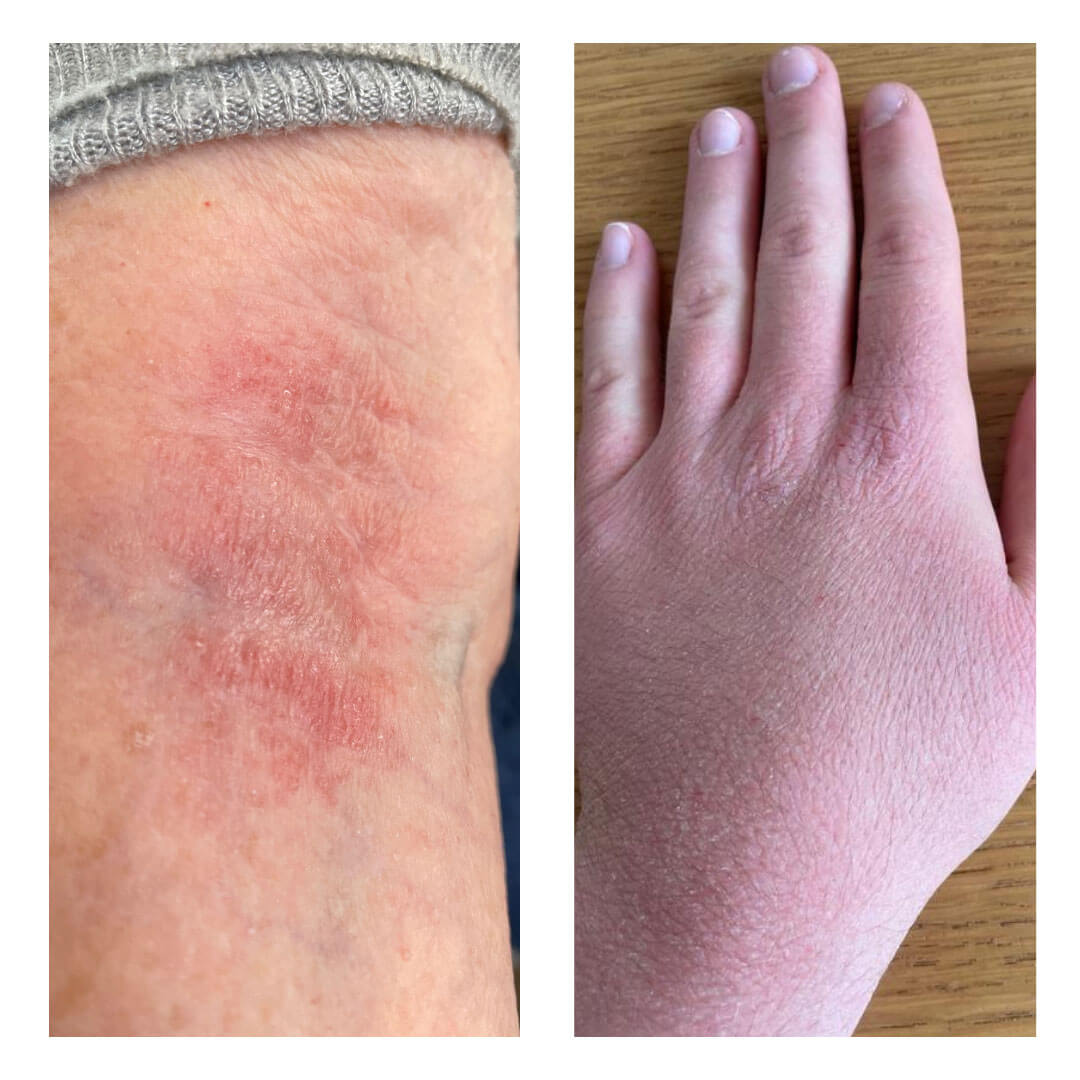
Why is my skin so dry?
Discover more about eczema, psoriasis and dry skin and what actions you can take to feel better

What is Eczema?
Eczema is a non-contagious, inflammatory dry skin condition that can affect people from early infancy to old age. The most common form, atopic eczema (atopic dermatitis), affects 1 in 5 children and 1 in 10 adults in the UK. Over 1.3 million people in the UK suffer.* The skin is often unbearably itchy – the urge to scratch can be irresistible – and during a flare-up it can also be red, cracked, sore and raw.
This can affect any part of the body, often affecting the hands, inside of elbows, backs of the knees and the face and scalp. The skin can become inflamed, red, cracked, sore and dry. If you have eczema, your skin may not produce as much fats and oils as other people’s, and will be less able to retain water. The protective barrier is therefore not as good as it should be. Gaps open up between the skin cells because they are not sufficiently plumped up with water. Moisture is then lost from the deeper layers of the skin, allowing bacteria or irritants to pass through more easily. Some everyday substances including soaps, bubble bath and washing-up liquid can contribute to breaking down the skin.**
Atopic eczema often occurs with those that suffer with hayfever or asthma. Food allergies, soaps, detergents, environmental factors, mites, animal fur, fabrics and hormonal shifts are all common triggers. Research has shown that children who have one or both parents with atopic eczema, or who have siblings with eczema, are more likely to develop it themselves*.
We’re all different and all types will vary from person to person. It's very important to moisturise and nourish often to soften the skin. This will help to reduce inflammation, redness, itching and soreness. When the skin becomes cracked and bleeds or a yellow crust forms, be careful to avoid infection.
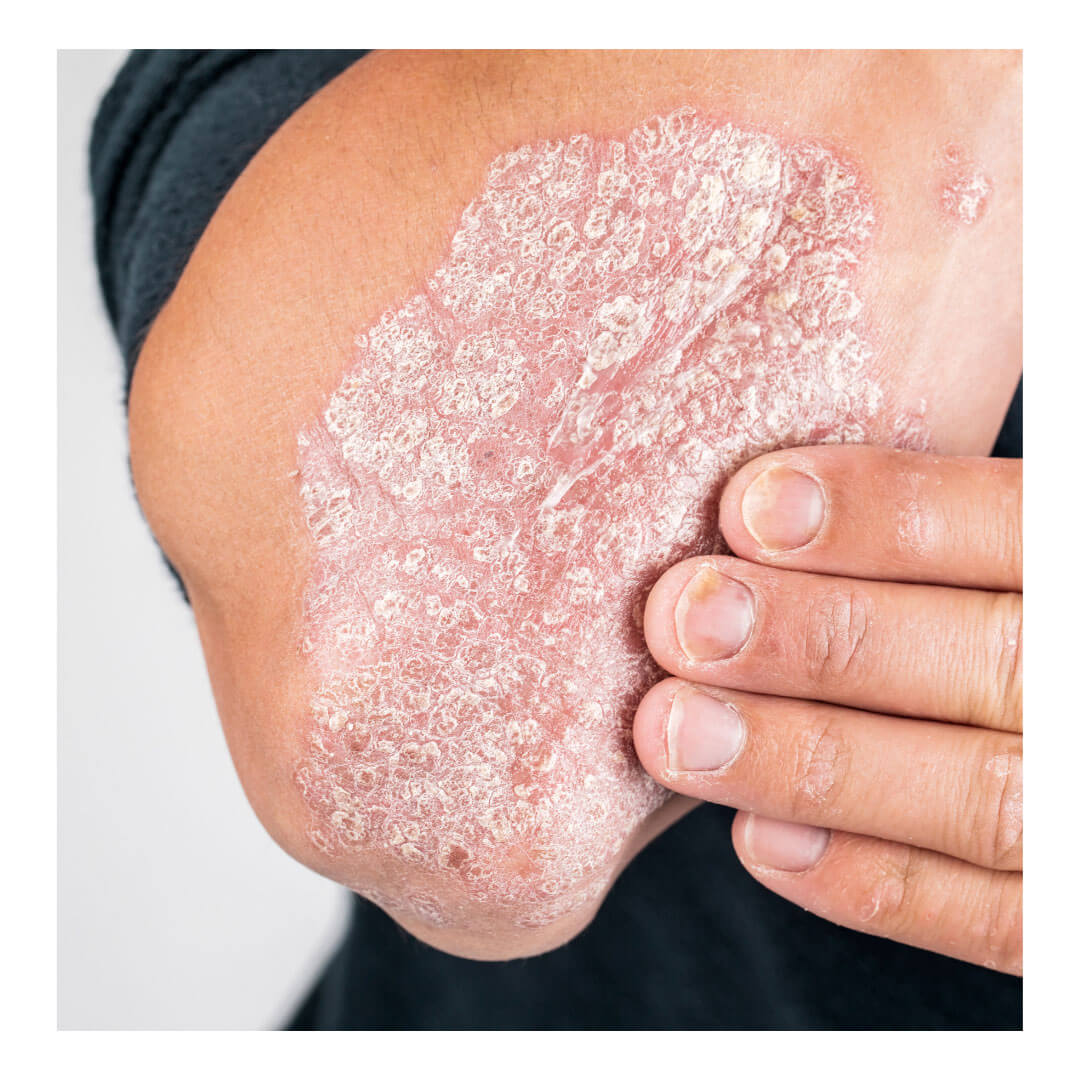
What is Psoriasis?
Psoriasis results in skin that can be painful, itchy, red and scaly with many people suffering with raised plaques - white or silvery scales, that form in varying amounts. Healthy skin cells shed and form every 3-4 weeks but among people who have psoriasis, their skin cells form and shed every 3-4 days. Patches can appear anywhere on the body but are most common on the scalp, hands, elbows, knees and lower back but it is non-contagious.
Psoriasis affects around 1 in 50 people in the UK - that’s over 1.1 million people*.
Psoriasis can occur at any age with two ‘peaks’: late teens to early thirties and between the ages of 50 and 60*** There may be periods when you have no symptoms or mild symptoms, followed by periods when symptoms are more severe. A flare-up may occur due to stress, anxiety, hormonal changes, injury to the skin or infections*** You may find that keeping a journal to record your sleep pattern, stress level, menstrual cycle, supplements, food, mood and hydration can help you identify patterns.
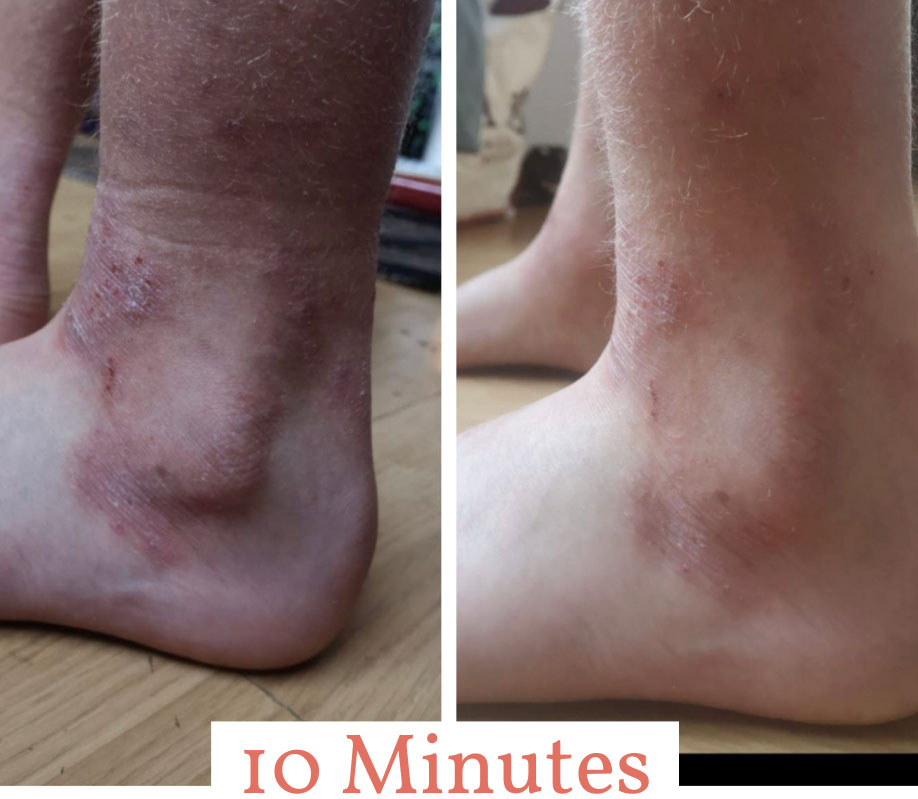
How Can I Help My Dry Skin?
Quite apart from the painful physical symptoms of eczema, psoriasis and dry skin, people may suffer from sleeplessness, anxiety, depression and other mental health issues associated with their skin condition.
Moisturising regularly will make the skin feel more comfortable and help to keep it nourished. It can also help reduce redness, soreness, itching and cracking. Keep nails short, use mitts for babies and try not to scratch. Avoid hot showers and baths and wearing loose clothing can help relieve itching.
Our SkinGenius eczema cream & eczema oil have been developed to relieve dry and parched skin and are effective for those suffering from all dry skin conditions including eczema and psoriasis.
Using a clever combination of powerful active botanical ingredients, try our Save Our Skin Duo and see the difference.

